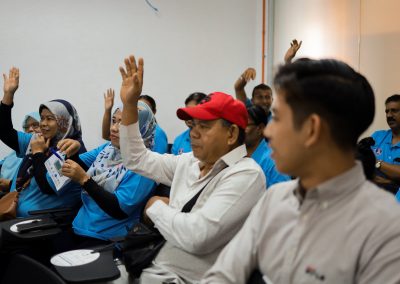Jakarta
Jakarta’s Resilience Journey
Indonesia’s largest metropolis is a delta city and one of the fastest sinking cities in the world, exposing it to a variety of shocks and stresses.
Jakarta and its surrounding districts and cities (known as Jabodetabek) are expected to become the largest megapolitan area in the world, with a total population of 35.6 million people.
Jakarta’s population growth and speed of urbanization increases the intensity and variety of stresses in the city, such as congestion, crime rate, and water scarcity, as well as the need for basic services. The limitations of basic services in DKI Jakarta, especially those related to access to clean water, wastewater, and waste services, increase citizens’ exposure to health risks.
Limited investment in public transport and fragmented governance of the metropolitan region are also major challenges for the Government of Jakarta.
The city’s Resilience Strategy is a strategic and tactical response that is structured around the concept of Jakarta as a City 4.0, or a city that places governments as collaborators and communities as co-creators. This strategy was prepared in collaboration with hundreds of stakeholders across government, communities, and businesses. The strategy promotes the achievement of three resilience pillars:
- Well-prepared Jakarta
- Healthy Jakarta
- Connected Jakarta
As the city’s resilience-building does not start from scratch with this strategy, ongoing initiatives will be aligned with the strategy to build wider and more impactful collaborations. The strategy will be a roadmap to realizing Jakarta’s resilient vision: “A resilient Jakarta that provides equal opportunity for all its citizens to live safe, healthy, prosperous, and happy lives through public service and innovation.”
View Strategy (English)
View Strategy (Indonesian)
News and Resources

Urban Exchange Episode 31: Resilient Sydney – 33 local governments, one resilience strategy

Speaker Series 2025 #08 | Lived Experience, Lasting Resilience: Communities in Action

Too Hot to Ignore: Extreme Heat in Malaysia is Pushing Communities to Act
Our Network
Which cities are a part of the Resilient Cities Network?


